“Dual-first-class” Universities & Education Informatization: The Second US-China Smart Education Conference was Successfully Held in Beijing Normal University
date:2017-03-21 19:25author:小编source:Smart Learning Instituteviews:
During March 18 to 20, 2017, the second US-China Smart Education Conference, which was organized by Beijing Normal University (BNU) and jointly hosted by Smart Learning Institute of Beijing Normal University (SLIBNU) and the United States New Media Consortium (NMC) was held in Yingdong Conference Hall of BNU. China Association of Higher Education (CAHE), The Chinese Society of Education (CSE) and International Association of Smart Learning Environment (IASLE) provided support and guidance to the conference. Zhanyuan Du, Deputy Minister of the Ministry of Education and Director of State Language Work Committee, Qi Dong, the Principle of BNU and Eden Dahlstrom, Executive President of NMC attended the conference. Other attendees include Binglin Zhong, President of CSE, Neal J.Smatresk, Principle of University of North Texas, Zhimin Li, Director of the Science and Technology Development Center of Ministry of Education, Kai Kang, Secretary-General of CAHE, Qiansheng Fang, Principle of Anhui Jianzhu University and Dehua Zeng, Deputy Director of Education Management Information Center of the Ministry of Education, etc. The opening ceremony of the conference was chaired by Zuoyu Zhou, Vice Principle of BNU.
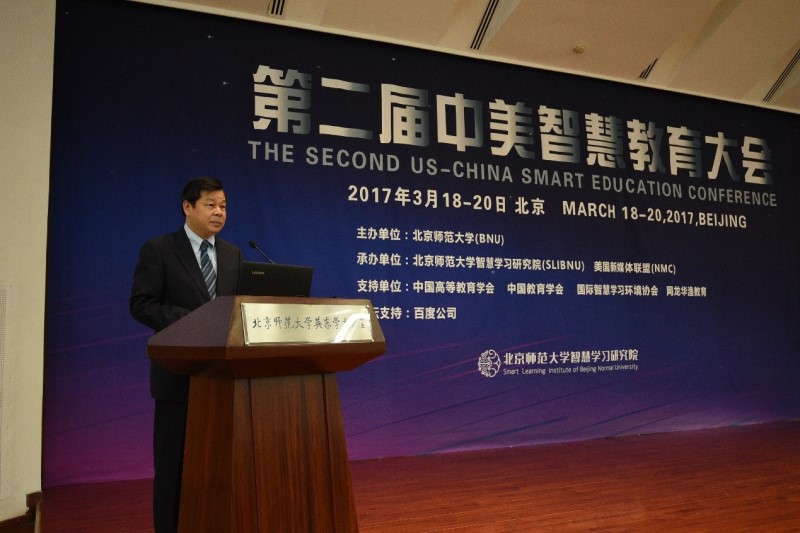
Zhanyuan Du, Deputy Minister of the Ministry of Education
Deputy Minister Zhanyuan Du said that, education in 2030 should be more open to break through the boundaries of time and space and the limit of educational group, so that all people can learn in anyplace whenever they want; it should be adjusted to the individuality and diversity of all the students and students should be taught in accordance with their aptitude, regardless of their social class; it should be more humanized, giving more consideration to the mind and happiness of students; it should be equal, so that all children can get access to high-quality education; it should also be more sustainable, emphasizing the capacity to learn and the need of lifelong education. Therefore, it is the only way to realize the goal of achieving educational modernization in the year 2030 by deepening the adoption of information technology on education and reforming the education system that is built under the framework of traditional industrial society.
Then he exemplified some practices of educational informatization to achieve the goals of educational modernization. He emphasized the significance of information technology in the reform and development of higher education. He pointed out that universities should use information technology widely in teaching, scientific research and management. They should transform traditional teaching methods, including teaching content, teaching methods and evaluation methods to cultivate diversified talents by using information technology, and promote scientific research and improve social service; they should optimize campus management processes through information technology to promote campus management modernization; in the meantime, to promote educational governance modernization by separating management, implementation and evaluation under the support of management modernization. Deputy Minister Zhanyuan Du emphasized in the end, the development of international education called for international cooperation and exchange, all countries around the world should share their experiences of success and development. This conference provided not only a platform for discussion and sharing, but also an opportunity to collaborate. We are looking forward to joint effort of scientists and experts in the United States and China to promote future development of education.
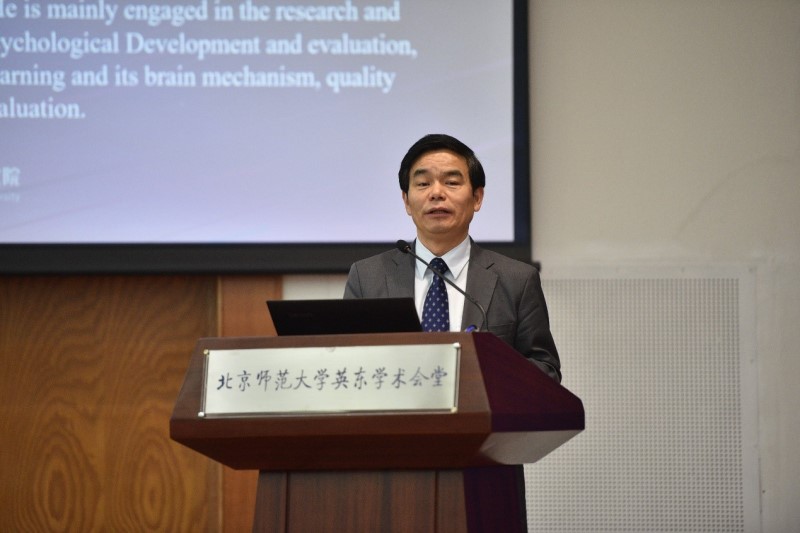
Qi Dong, Principle of Beijing Normal University
Principle Qi Dong believed, universities should consider their own advantages and specialties in building dual-first-class universities. In the era of information technology, there are many challenges in the reform of informatization teaching and the pattern of teaching staff training, it is the common problem for current universities. BNU has made great effort in building a platform for research, cultivating talents and carrying out international cooperation to realize a “dual-first class” university. For the next generation of China and the world, we should emerge the technological development with education using the background of “Internet +” to promote educational equality and improve educational quality. Principle Qi Dong finally pointed out that what the experts of two countries discussed and shared was not only good for the participants in the conference, but also beneficial for the scientific research and talents cultivation in the field of smart education.
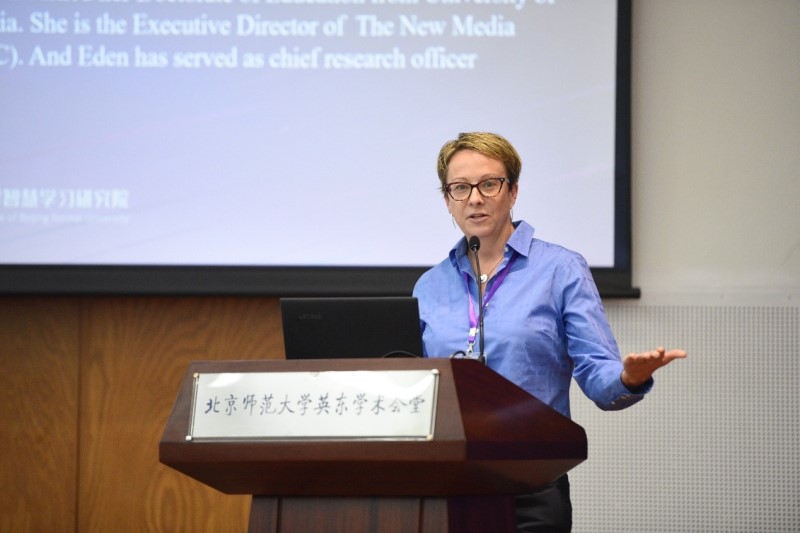
Eden Dahlstrom, Executive President of New Media Consortium
Eden Dahlstrom, Executive President of New Media Consortium said this conference was held to exchange the experiences to adopt technological use in higher education, so that the countries can collaborate to seek mutual improvement.
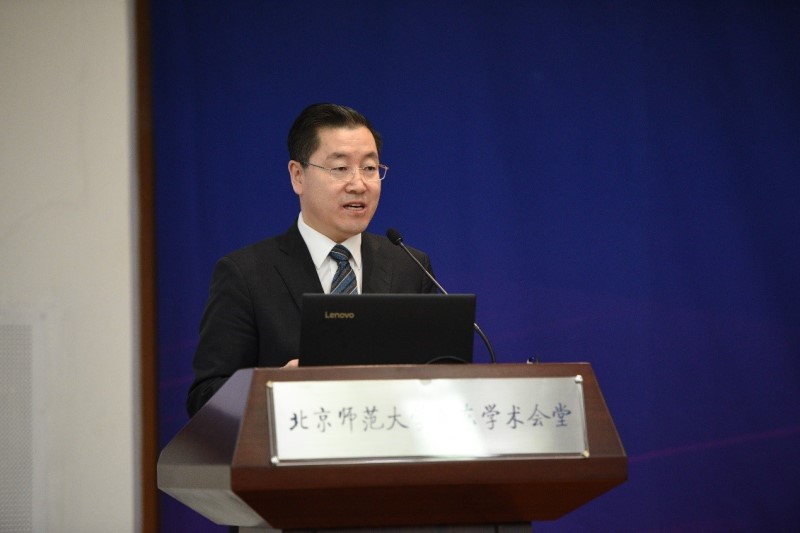
Zuoyu Zhou, Vice President of Beijing Normal University
In the session of keynote speech, Binglin Zhong, President of CSE and Neal J.Smatresk, Principle of University of North Texas gave speeches respectively on Promote Connotative Development of Universities and Accelerate the Construction of Dual-first-class Universities and Strategic Initiatives at UNT to Meet the Challenges of Educational Innovation:A Case Study. This session was chaired by Dejian Liu and Ronghuai Huang, Co-Deans of SLIBNU.

Binglin Zhong, President of the Chinese Society of Education

Neal J.Smatresk, Principle of University of North Texas
President Binglin Zhou pointed in his report that, to build a dual-first-class university should view the universities and education above the universities and education. There are challenges as well as opportunities in developing higher education. Therefore, universities should renew educational idea, deepen the reform of talents cultivation pattern, strengthen the construction of human resources and material resources, improve modern college system, raise educational international level and foster quality campus culture, thus to promote connotative development and the dual-first-class construction of universities. Principle Smatresk introduced how American universities confront the various challenges through education innovative technology by giving some practices of University of North Texas.
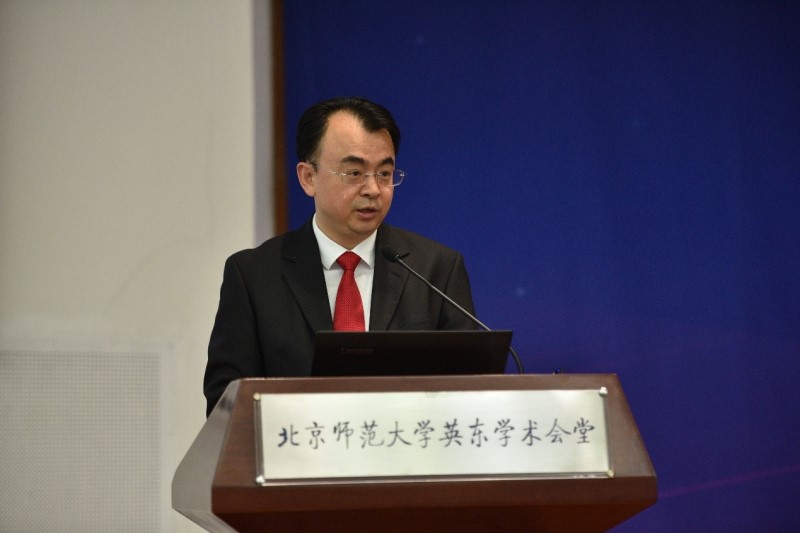
Dejian Liu, Co-Dean of Smart Learning Institute of Beijing Normal University
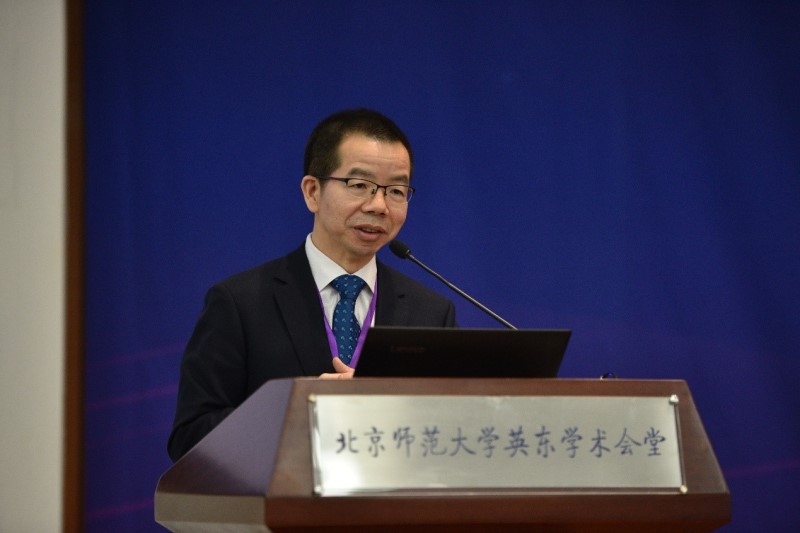
Ronghuai Huang, Co-Dean of Smart Learning Institute of Beijing Normal University
In the session of invited report, Patricia Prado-Olmos, Vice-Chancellor of San Marcos, California State University, and Di Wu, Professor of Central China Normal University, respectively addressed on the topics of University Governance and Big Data - It's Complicated and the development Track of Emerging Information Technology on Education from a Macro Perspective..
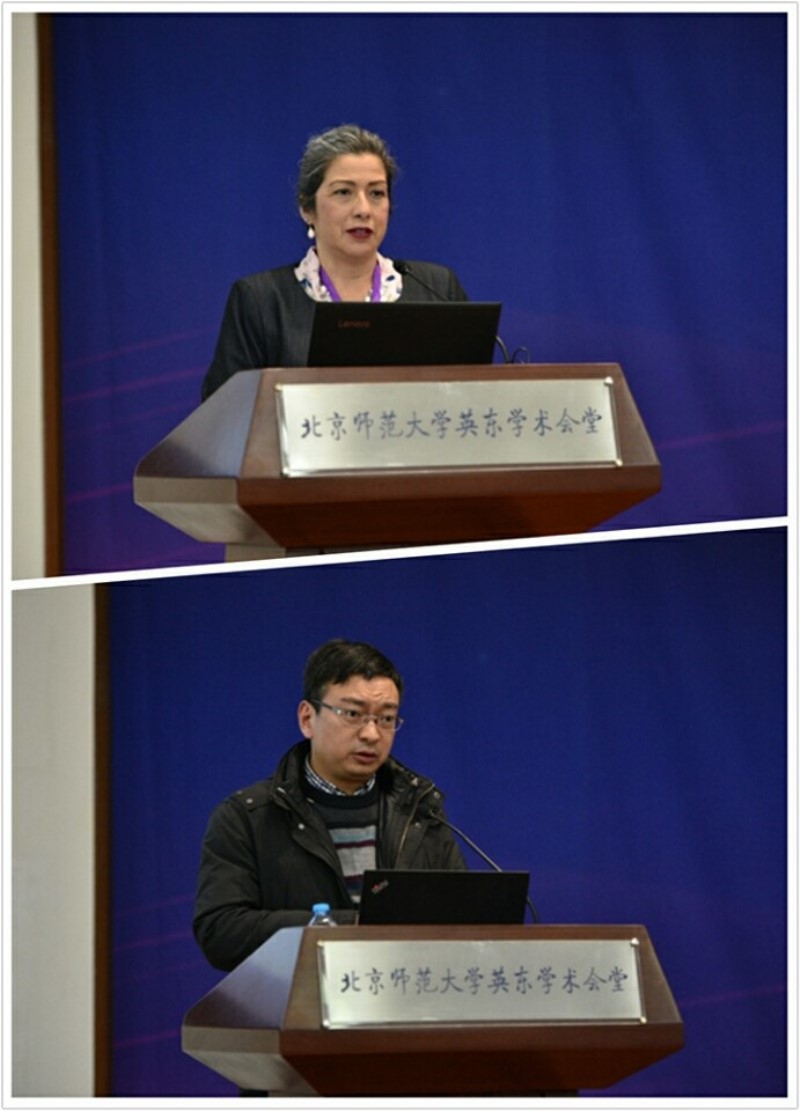
Guests in the Session of Invited Report
Before the afternoon meeting on May 18th, Ronghuai Huang, Chief investigator of the NMC Horizon Project in China, officially released the 2017 NMC Technology Outlook for Chinese Higher Education: A Horizon Project Regional Report, which is another important research result after the release of 2016 NMC Technology Outlook for Chinese Higher Education: A Horizon Project Regional Report by NMC and SLIBNU. In the report, 2017 Horizon Project China Expert Panel, which is composed of 85 international and domestic experts, made use of Delphi-based process and desktop research, answering research problems, run-off voting and collecting case, and finally identified 9 key trends accelerating technology adoption, 9 significant challenges impeding technology adoption and 12 important developments in educational technology.

During the conference, in 7 workshops which respectively were “Future Education Driven by Artificial Intelligence”, “Innovative Talent Cultivation and Collaborative Development of Production, Learning and Research in Universities”, “Information-based University Human Resource Establishment and Management”, “Modern University Governance Based on Big Data and Information Technology”, “Professional Development of University Teachers in Digital Era”, “Learning Design and Blended Learning” and “A New Generation of Campus Establishment in Universities”, esteemed experts and scholars in the field of education informatization, university leaders, administrators of education management department and leaders of university education informatization work, technologists, guests from Netdragon, Baidu and EPXING and other representatives shared the latest progress in education informatization of higher education around the globe and research of smart education. They had a fierce discussion and a deep exchange in relevant topics. The 7 workshops were presided over by university leaders, experts and young scholars in the field, who would comment on the discussion.
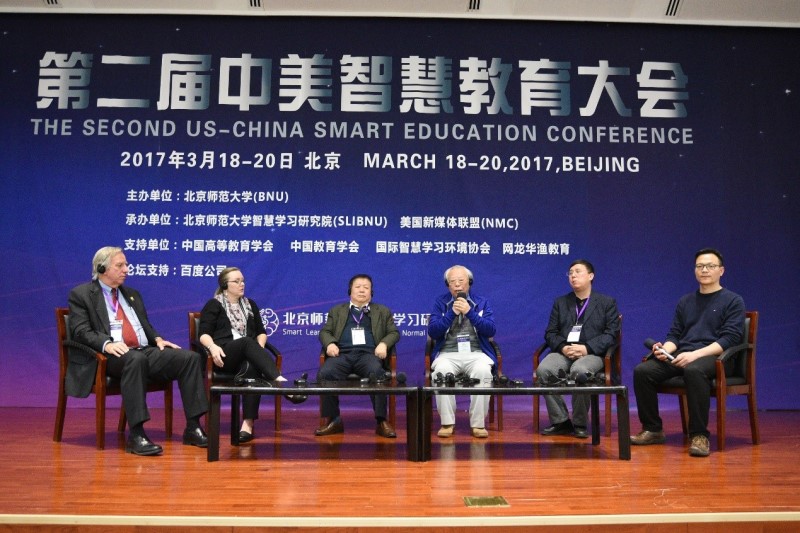
Workshop of Future Education Driven by Artificial Intelligence
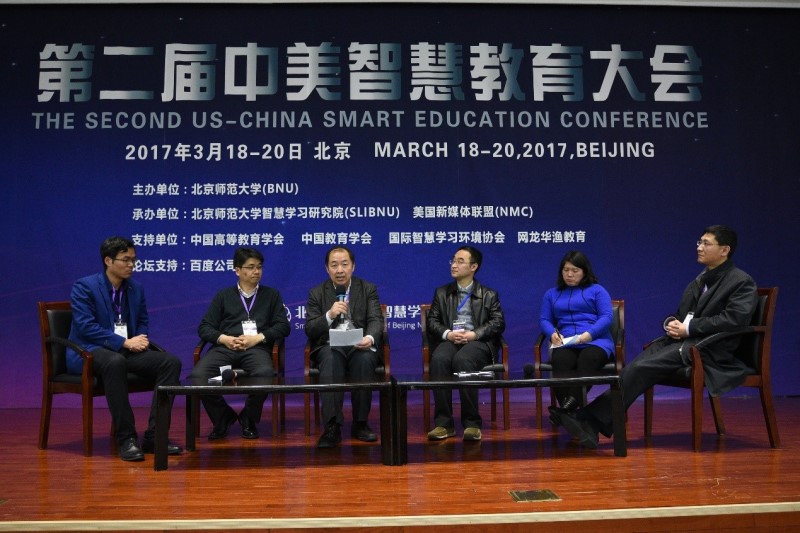
Workshop of Information-based University Human Resources Establishment and Management”
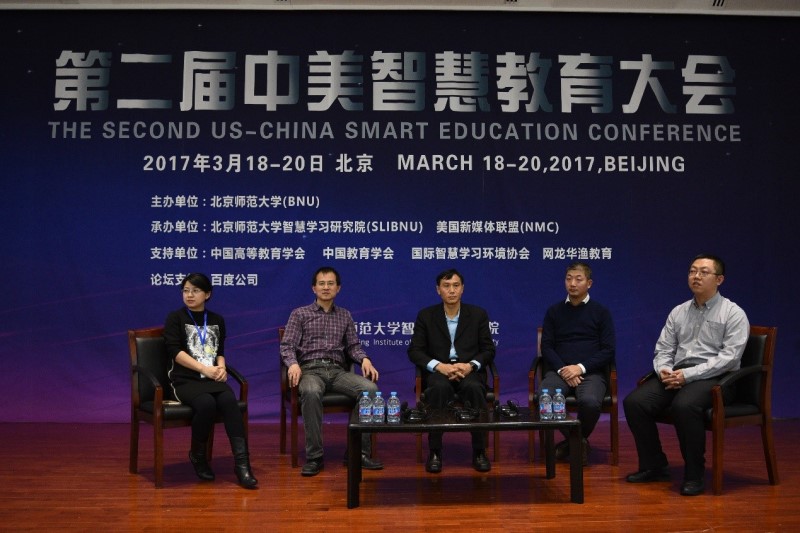
Workshop of A New Generation of Campus Establishment in Universities
Ronghuai Huang, Co-chair of the conference program committee invited the presidents at present to attend the US-China University President Forum held in Smart Learning Institute of Beijing Normal University. Eden Dahlstrom, Executive President of NMC, Neal J. Smatresk, Principle of University of North Texas, Michael Berman, Vice-Chancellor of California State University, Channel Islands, Patricia Prado-Olmos, Vice-Chancellor of California State University, Charles Snare, Vice-Chancellor of California State University San Marcos, Charles Snare, Vice Chancellor of Chadron State College, Niki Whiteside, Vice-Chancellor of Mt. San Jacinto College, Qiansheng Fang, Principle of Anhui Jianzhu University, Guangju Chen, Vice Principle of Beijing Normal University, Chen Liu, Vice President of The Open University of China, Maqun Wu, Dean of Beijing Information Technology College and Liancheng Zhang, Vice President of Beijing Union University accepted the invitation.
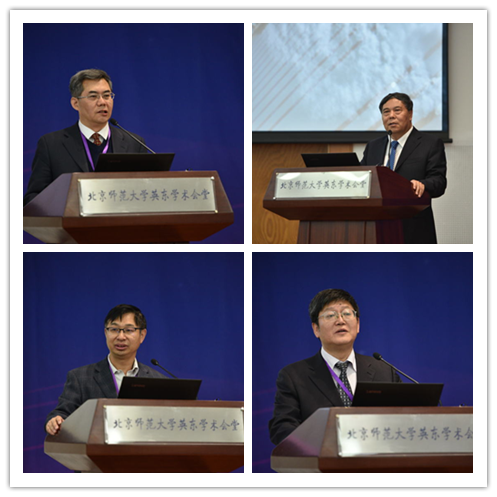
Some domestic guests
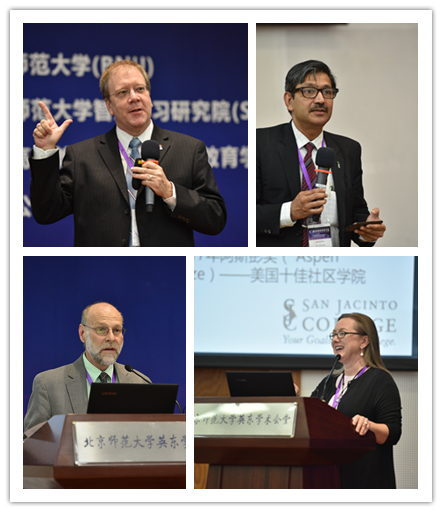
Some foreign guests
In the conference, 55 guests (43 domestic guests and 12 foreign guests) were specially invited, attracting more than 260 representatives to attend. 60 guests made a speech on 7 workshops. The whole process of the conference was broadcasting online around the globe, there were average 1000 to 2000 online participants in unit time. The audience could interact in the forms of pictures or words through the conference APP during the whole process. Many thought this conference was of great meaning, and they were looking forward to the conference in next year.
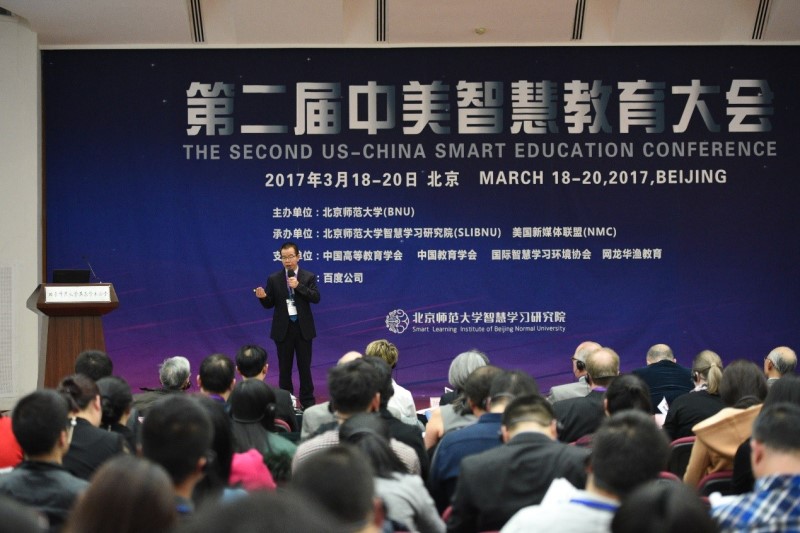
Ronghuai Huang, Dean of Smart Learning Institute of BNU
In the afternoon of May 20th, chaired by Ronghuai Huang, Co-dean of SLIBNU, the second US-China Smart Education Conference was a great success. Professor Ronghuai Huang spoke of his understanding of smart education, that is, we are respectful to education, because it shapes the soul of human beings; we are cautious to technology, because technology adoption must be effective; we are confused to wisdom, because there are more and more uncertainty and we are serious to academy, because academic research must be fully proved.
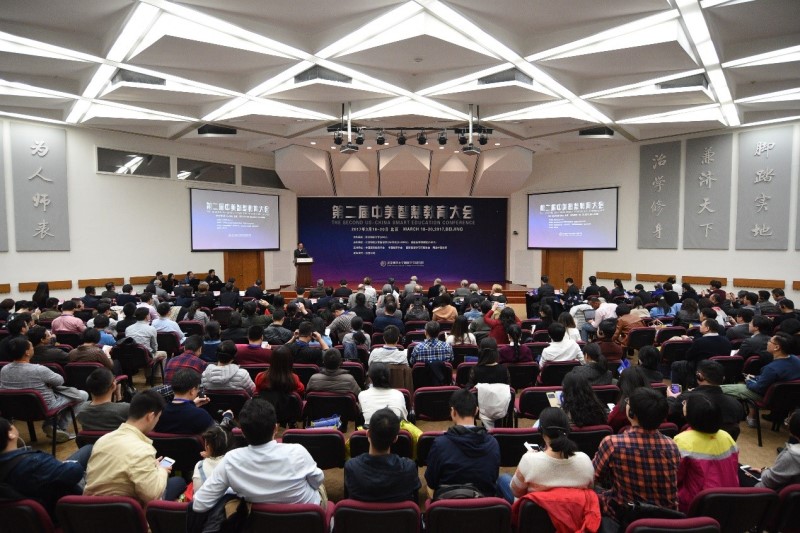
At the conference
This conference is a sustainable international academic exchange in the field of higher education informatization. It is not only a platform for talents to exchange ideas deeply, but also a stage to change the future and lead innovation.

